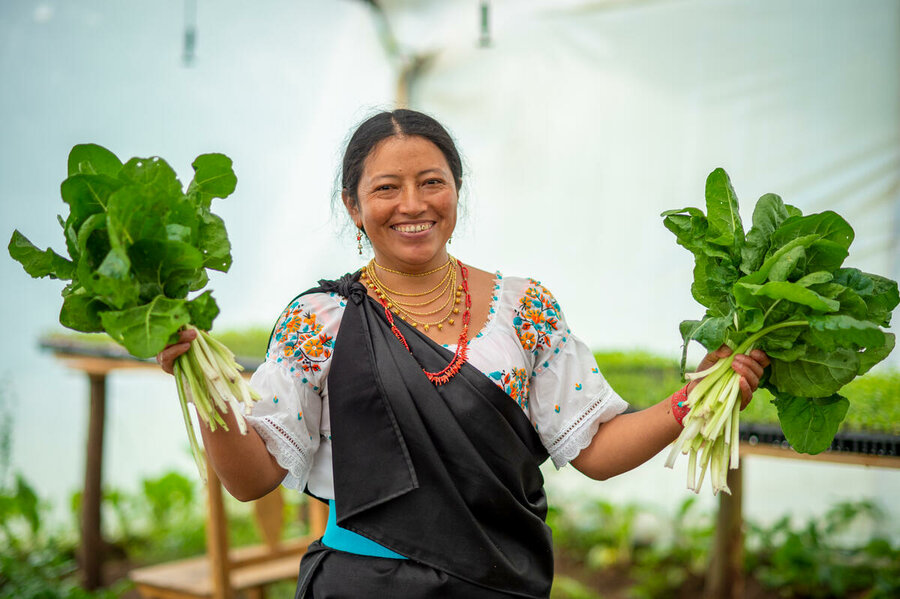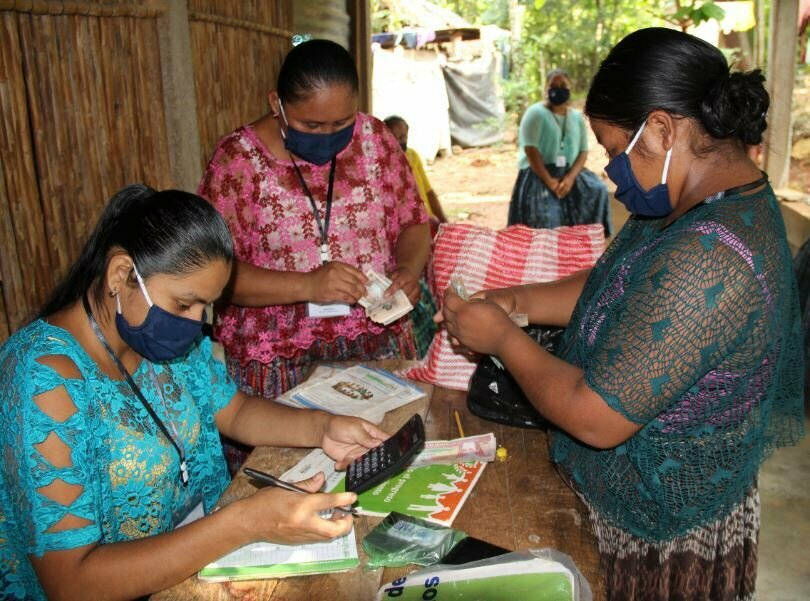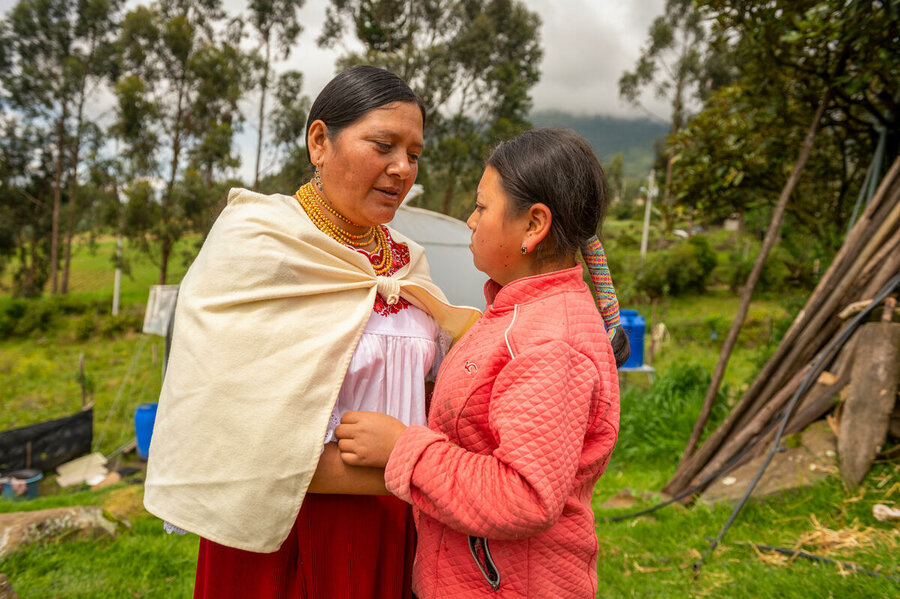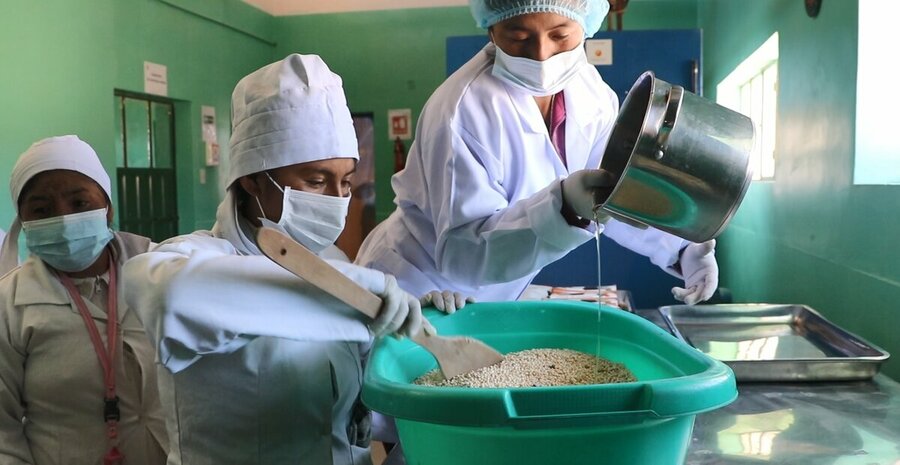Supporting Latin America's 'custodians of the seeds'
They are the backbone of their families and communities — and make up roughly one-eighth of Latin America’s rural population. Even more crucially, perhaps, they keep and transmit precious ancestral knowledge on growing and using traditional foods, whose importance is only now being recognized.

Yet the vital role the region’s Indigenous rural women play in their communities and society is very seldom acknowledged, much less celebrated.
“They are the custodians of the seeds,” says Déborah Suc, a World Food Programme (WFP) agronomist who works with Indigenous communities in Alta Verapaz, Guatemala.
WFP helps to support Indigenous rural women to overcome historic barriers, fully harness the ancestral wisdom they carry, and contribute on an equal footing to the life of their communities. Doing so is not just a matter of social justice, but is also key to supporting sustainable and long-term food security.
“Despite the richness of their knowledge and their importance as lynchpins to the family and community, Indigenous rural women struggle to see their role recognized due to traditional gender roles and discrimination,” says Alejandra Pero, Global Indigenous Peoples Adviser at WFP.
The ancient knowledge these women keep on how to produce and process food from the field to the plate amounts to key steps of what is today called a “food system.”

The rich variety of cereals and plants traditionally used by Indigenous peoples can help keep families well fed and nourished, especially when nutritious food is scarce or unaffordable. Traditional know-how also extends to the use of herbs for medicinal purposes, which can be–quite literally–a lifesaver in remote rural areas with no easy access to health facilities.
“In our community, we prepare food with wild herbs like chipilín and macuy [leafy vegetables rich in minerals] to ensure our children are healthy and have all the nutrients they need,” says Sandra Adelaida Chub, a member of Guatemala’s Q’eqchi’ community, who works on a WFP project in the north-central part of the country. “It was our Mayan ancestors who taught us.”
In several countries across the region, WFP projects are helping Indigenous women harness their know-how and expand their productivity. Here are a few examples from Guatemala, Ecuador and Bolivia.
Guatemala: Joining forces and savings
In central Guatemala’s Alta Verapaz department, one of the poorest in the country, there are few opportunities to move ahead. The area has been hard hit by two powerful hurricanes in recent years, along with job losses from the COVID-19 pandemic.

Yet a group of Indigenous Q’eqchi’ women is banking on new business opportunities, thanks to a WFP financial training programme focusing on savings and credit.
“Before, we were not able to save one single cent, but now we can get a loan through the group and cater for the needs of our families,” says Herlinda Caal Tzi, a Q'eqchi' woman who chairs the Savings and Credit group in the Corazón de Maíz community.
WFP also provided local women with technical support for their economic activities such as farming and animal husbandry.
Thanks to the support, the women bought a maize sheller and started a business offering shelling services to community members.
Ecuador: More vegetables, more leadership
In Ecuador’s northern province of Imbabura, surrounded by spectacular snowcapped volcanoes, low temperatures and water scarcity traditionally limited crops to just maize and potatoes.
But in the San Pablo del Lago area, the local Indigenous community now produces 13 types of vegetables - including carrots, cabbage, beetroot and courgettes - thanks to a new WFP-backed greenhouse and crop diversification project that allows them to introduce nutritious foods into their diet.

“We learned things we had no idea of,” says Patricia Perachimba, one of the Indigenous women who make up 80 percent of the project’s participants.
A mother of three, Patricia lost her job as a hospital cook during the COVID-19 pandemic. But under the WFP project, she counted among more than two-dozen budding farmers who got trained in areas such as agricultural productivity, fertilizer development, water harnessing and marketing— knowledge she will pass on to other community members.
Women also play a leading role in managing the greenhouse, which has become a space where they can receive training and support each other.
The project, Patricia says, has taught women in the community to speak out in public and take part in decision making, which had not been the case previously.
Bolivia: Traditional quinoa turns snack food
In the drought-stricken Oruro department of southwestern Bolivia, a group of Aymara women is running a factory to process locally grown quinoa into tasty chocolate-coated bars that are rich in proteins and vitamins – a godsend in an area with high child malnutrition rates.

In 2018, WFP Bolivia started supporting the group through training and linking the factory to markets, including schools in the department where the quinoa bars could be distributed as snacks.
“We went through so many hardships,” recalls Rosario Navia, one of the founding members of the group.
However, their perseverance and hard work paid off. The factory generates an income for many families and helps to improve nutrition for children and adults alike.
The entrepreneurial spirit and determination of these women has been an inspiration for the men of the community, who also sometimes chip in with the production.
